INSOMNIA AND SOME OF ITS NATURAL REMEDIES
Do you have difficulty in sleeping? Do you spend sleepless nights? Are you concerned?
If not, let me tell you something.
More than 70% students do not get the required seven hours of sleep in the weeks leading up to final examinations, with 18% sleeping only three to five hours a day, concluded a multi-city survey of close to 6,500 children in India.
Are you concerned now? There is more.
Indians might be among the most-sleep deprived people in the world. Among the worst affected are call-center employees.
Technology devices company Fitbit conducted a survey of sleep habits in 18 countries that showed Indians get an average of six hours and 55 minutes of sleep per day.
Another survey by Philips of 5,600 Indians and found that 93% of them were sleep deprived. About 74% of respondents said that they woke up between one and three times during the night.
If you are also a part of these alarming statistics and suffer from Insomnia,
DO NOT take it lightly.
The word Insomnia originates from the Latin word
'Insomnis' which means the inability to sleep. It is a sleep disorder which affects millions of people all around the world. The effects of Insomnia can be devastating which can lead to daytime sleepiness, lethargy and a general feeling of being unwell both physically and mentally. Mood swings, irritability, and anxiety are also some of the associated symptoms.
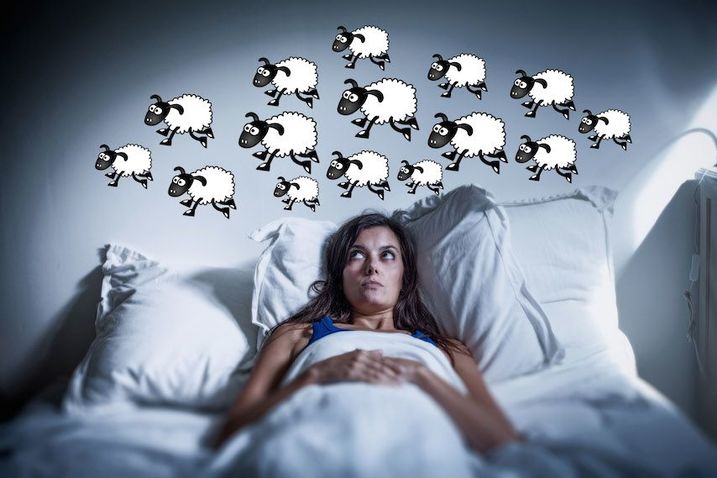
Insomnia can become chronic
CAUSES:
Insomnia can be caused by physical and psychological factors. There is sometimes an underlying medical condition that causes chronic insomnia, while transient insomnia may be due to a recent event or occurrence. Insomnia is commonly caused by:
- Disruptions in circadian rhythm such as jet lag, job shift changes, high altitudes, environmental noise, extreme heat or cold.
- Psychological issues such as bipolar disorder, depression, anxiety disorders, or psychotic disorders.
- Medical conditions like chronic pain, chronic fatigue syndrome, congestive heart failure, angina, acid-reflux disease (GERD), chronic obstructive pulmonary disease, asthma, sleep apnea, Parkinson's and Alzheimer's diseases, hyperthyroidism, arthritis, brain lesions, tumors, stroke.
- Hormones - estrogen, hormone shifts during menstruation.
- Other factors - sleeping next to a snoring partner, parasites, genetic conditions, overactive mind, pregnancy.
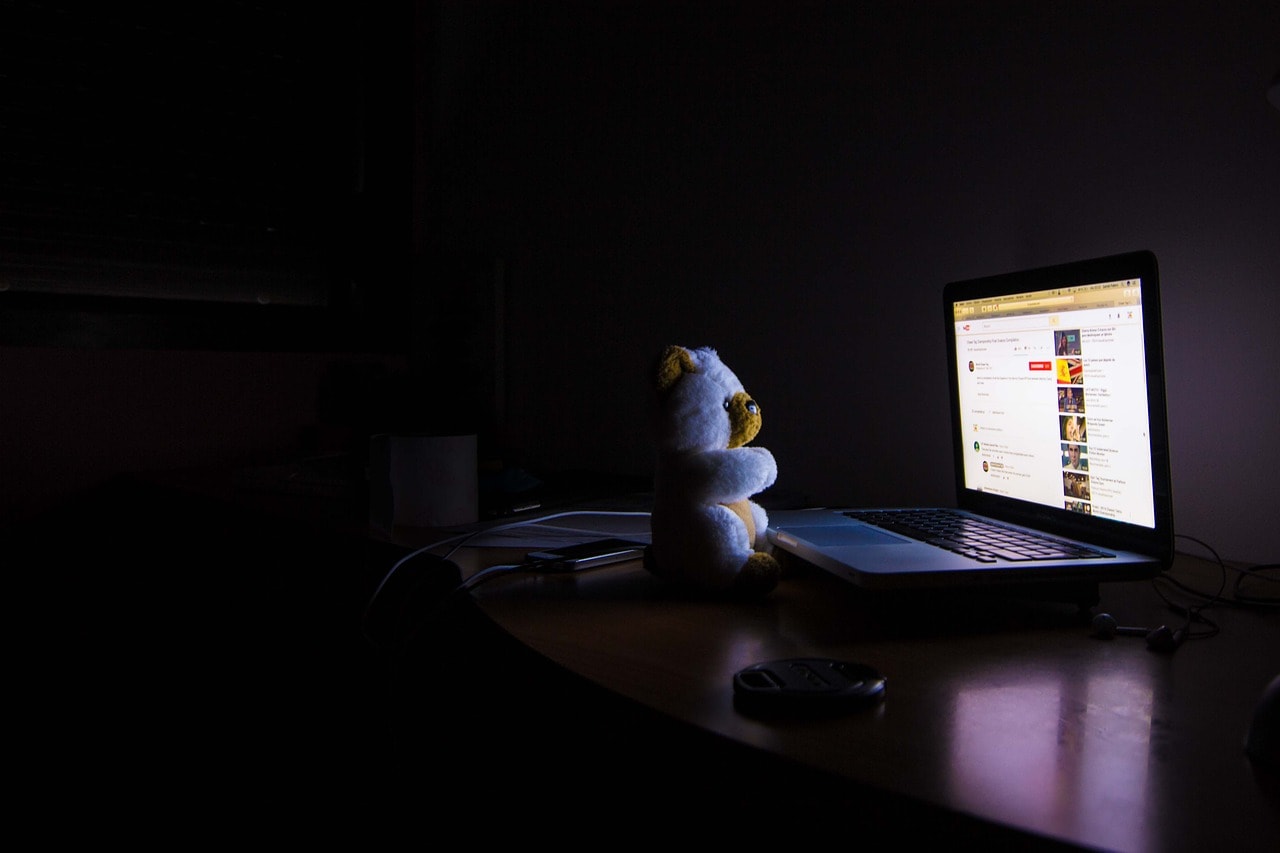
Insomnia affects personal and professional lives
Several small studies in adults and children have suggested that an exposure to light from televisions and smartphones prior to going to sleep can affect natural melatonin levels and lead to increased time to sleep.
In addition, a study conducted by Rensselaer Polytechnic Institute found that
backlit tablet computers can affect sleep patterns. These studies suggest that technology in the bedroom can worsen insomnia, leading to more complications.
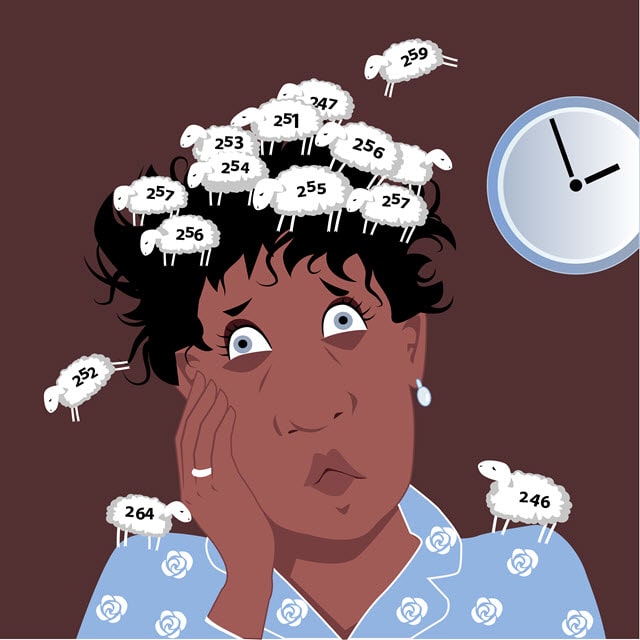
You NEED to TREAT Insomnia
TYPES:
Insomnia includes a wide range of sleep disorders, from lack of sleep quality to lack of sleep quantity. Insomnia is commonly separated into three types:
Transient insomnia - occurs when symptoms last up to three nights.
Acute insomnia - also called short-term insomnia. Symptoms persist for several weeks.
Chronic insomnia - this type lasts for months, and sometimes years. According to the National Institutes of Health, the majority of chronic insomnia cases are side effects resulting from another primary problem.
FIVE HOME REMEDIES FOR INSOMNIA:
- Get Comfortable: Try sleeping in a quieter room, or wear earplugs. The best sleep environment is one that is dark, quiet, comfortable, and cool, according to the National Sleep Foundation. You should also use your bedroom only for sleep and sex. No work, no eating, no television, and no arguing with your bed partner.
- Limit Caffeine and Alcohol: Although alcohol can make you feel drowsy and may actually put you to sleep, it has the unpleasant side effect of waking you up later on in the night with a headache, stomachache, or a full bladder. In addition, once alcohol's sedative effect wears off, there's a rebound effect that actually makes you more likely to have trouble falling back to sleep. Caffeine, on the other hand, stimulates your brain. Limit your coffee intake to two cups a day. Starting at noon, consume no foods or beverages that contain caffeine.
- Keep a Normal Schedule: Perhaps the most important rule for people with insomnia is to keep a strict sleep-wake schedule, even on weekends. If you can't sleep one night, get up at your usual time the next morning and don't take any naps. If you nap, you'll have more trouble getting to sleep the next night, thereby compounding your insomnia. It's best to let yourself get good and sleepy so that it will be easier to get to sleep the next night.
- Establish a Bed Time Ritual: When mothers bathe their children or read to them every night before bedtime, they are reinforcing a signal that it's time to settle down and get ready for sleep. Establishing such a ritual may also be helpful for adults. A hot bath taken two hours before bedtime is a wonderful way to relax your body and make it ready for sleep. For most people, taking a bath closer to bedtime may be stimulating and may delay sleep (of course, there are always exceptions, so experiment with the timing if you need to).
- Have a Bedtime Snack: High carbohydrate, low-protein bedtime snacks can make sleeping easier. Carbohydrate-rich foods like toast tend to be easy on the tummy and can ease the brain into blissful slumber. Drinking a glass of milk, especially a glass of warm milk, before bedtime is an age-old treatment for sleeping troubles. Some scientists believe it's the presence of tryptophan, a chemical that helps the brain ease into sleep mode, that does the trick. Whatever the reason, milk seems to help some people hit the sack more easily. And warm milk seems to be more effective at relaxing body and mind. However, if you wake frequently to urinate, avoid liquids for a few hours before bedtime. Other foods high on the tryptophan scale are cottage cheese, cashews, chicken, turkey, soybeans, and tuna.
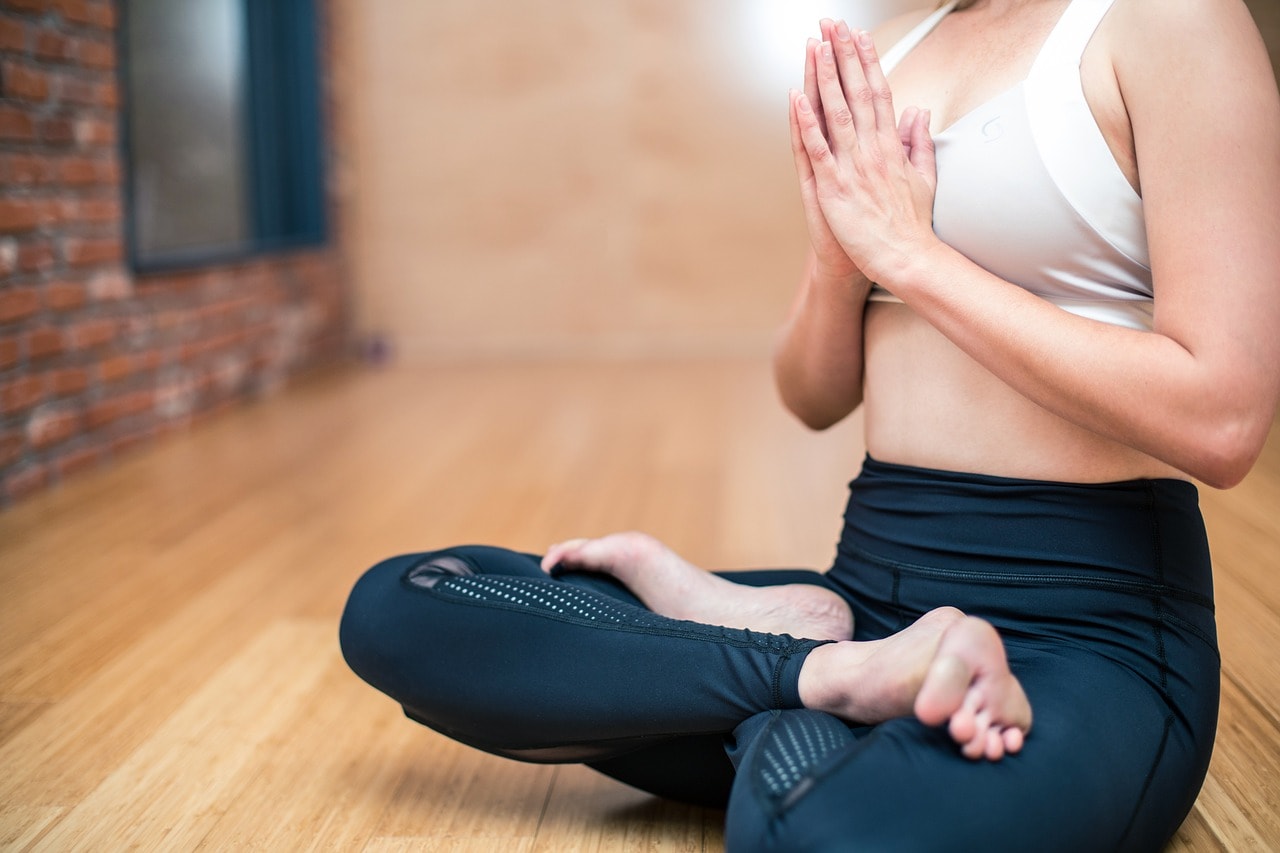
Meditation helps to cope with Insomnia
Art of Living India has come up with many ways of meditation and yoga to cope with Insomnia like Sahaj Samadhi Meditation and Yogic Sleep.
There is no one formula for perfect sleep - different things work for different people. The important thing is to give everything a fair and persistent trial (for at least a week or two, not just one night) and see what works best for you. Keep a sleep log, a notebook of what works and what doesn't.
One study also concluded that Insomnia can be hereditary and can affect your personal life, so both for yourself, your family and your child’s sake, deal with INSOMNIA.
There's no magic trick to treating insomnia, but some of the home remedies outlined here might just be the recipe you need to get back to sleep.
For more interesting content follow our digital magazine BananiVista. Do "Like" and "Follow" us on Facebook.





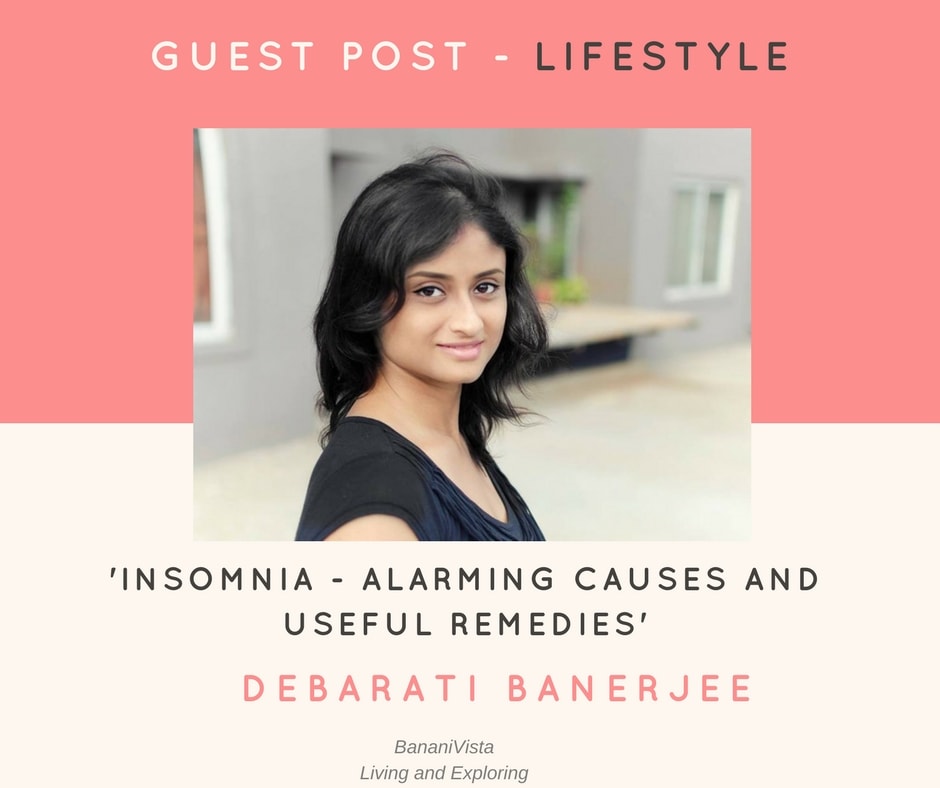
 Insomnia can become chronic
Insomnia can become chronic
 Insomnia affects personal and professional lives
Several small studies in adults and children have suggested that an exposure to light from televisions and smartphones prior to going to sleep can affect natural melatonin levels and lead to increased time to sleep.
In addition, a study conducted by Rensselaer Polytechnic Institute found that backlit tablet computers can affect sleep patterns. These studies suggest that technology in the bedroom can worsen insomnia, leading to more complications.
Insomnia affects personal and professional lives
Several small studies in adults and children have suggested that an exposure to light from televisions and smartphones prior to going to sleep can affect natural melatonin levels and lead to increased time to sleep.
In addition, a study conducted by Rensselaer Polytechnic Institute found that backlit tablet computers can affect sleep patterns. These studies suggest that technology in the bedroom can worsen insomnia, leading to more complications.
 You NEED to TREAT Insomnia
You NEED to TREAT Insomnia
 Meditation helps to cope with Insomnia
Art of Living India has come up with many ways of meditation and yoga to cope with Insomnia like Sahaj Samadhi Meditation and Yogic Sleep.
There is no one formula for perfect sleep - different things work for different people. The important thing is to give everything a fair and persistent trial (for at least a week or two, not just one night) and see what works best for you. Keep a sleep log, a notebook of what works and what doesn't.
One study also concluded that Insomnia can be hereditary and can affect your personal life, so both for yourself, your family and your child’s sake, deal with INSOMNIA.
There's no magic trick to treating insomnia, but some of the home remedies outlined here might just be the recipe you need to get back to sleep.
For more interesting content follow our digital magazine BananiVista. Do "Like" and "Follow" us on Facebook.
Meditation helps to cope with Insomnia
Art of Living India has come up with many ways of meditation and yoga to cope with Insomnia like Sahaj Samadhi Meditation and Yogic Sleep.
There is no one formula for perfect sleep - different things work for different people. The important thing is to give everything a fair and persistent trial (for at least a week or two, not just one night) and see what works best for you. Keep a sleep log, a notebook of what works and what doesn't.
One study also concluded that Insomnia can be hereditary and can affect your personal life, so both for yourself, your family and your child’s sake, deal with INSOMNIA.
There's no magic trick to treating insomnia, but some of the home remedies outlined here might just be the recipe you need to get back to sleep.
For more interesting content follow our digital magazine BananiVista. Do "Like" and "Follow" us on Facebook.